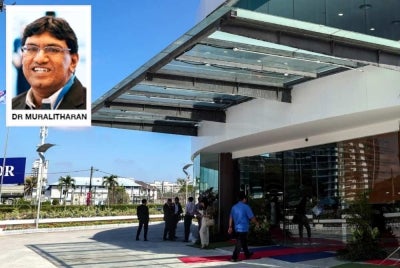Vasectomy reversal more complex than vasectomy
While the initial vasectomy typically takes 15 to 30 minutes, a reversal requires greater precision and takes two to four hours under a high-powered operating microscope.

SHAH ALAM - Vasectomy reversal is a highly intricate microsurgical procedure, requiring more detailed skill and precision than the initial vasectomy.
Universiti Malaya Medical Centre consultant urologist and andrologist Dr Chai Chu Ann explained that a vasectomy is a surgical procedure that cuts or seals the vas deferens to prevent sperm from mixing with semen, making a man sterile.
In contrast, a vasectomy reversal is a more intricate microsurgical procedure that reconnects the vas deferens, restoring sperm flow into the semen and potentially reversing the sterilisation.
"While the initial vasectomy typically takes 15 to 30 minutes, a reversal requires greater precision and takes two to four hours under a high-powered operating microscope.
"Depending on the underlying condition, the surgeon may perform a vasovasostomy (rejoining the severed ends of the vas deferens) or a vasoepididymostomy (connecting the vas deferens to the epididymis) to bypass blockages," he said in an interview with Sinar Daily.
Dr Chai explained that recovery from a vasectomy reversal usually takes one to two weeks.
During this period, patients should refrain from strenuous activities, heavy lifting and sexual intercourse to ensure proper healing, although light activities can typically be resumed after a week.
"A semen analysis is often conducted six to eight weeks post-surgery to evaluate the presence of sperm and couples can attempt conception once the surgeon gives clearance.
"Although vasectomy reversal is generally safe when performed by an experienced microsurgeon, it carries some risks, including infection, bleeding, pain and in rare cases, testicular damage due to injury to blood vessels.
"Postoperative complications like fluid buildup or granulomas are uncommon and manageable," he added.
Dr Chai said awareness of vasectomy as a family planning option in Malaysia remains low due to cultural and social stigmas, with many perceiving the procedure as a taboo.
Similarly, knowledge about vasectomy reversal is limited.
"To address this, healthcare providers could launch public education campaigns, workshops and consultations to highlight the safety, effectiveness and reversibility of vasectomy.
"Collaborations with community leaders, non-governmental organisations and social media platforms can help dispel misconceptions and promote informed decision-making.
"By enhancing awareness and normalising conversations around vasectomy and its reversal, more couples could consider it as a viable family planning option," he said.
Download Sinar Daily application.Click Here!















